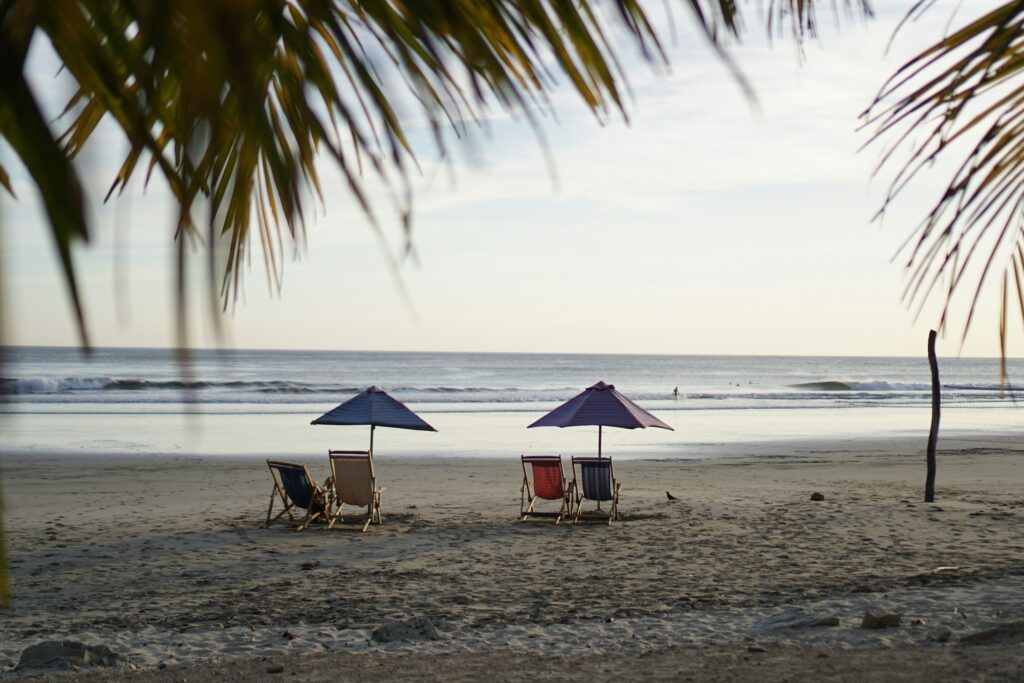
Getting Started: The Basics of Travel Documents
Traveling through Nicaragua can be an amazing adventure filled with stunning landscapes and vibrant culture. But before you dive into the beauty of this Central American gem, you’ll want to make sure you have all your essential documents in place. This checklist will help you stay organized and, importantly, avoid unnecessary hassles like bribery at checkpoints.
1. Valid Passport
First things first: make sure your passport is valid for at least six months beyond your planned departure date. This is a common rule across many countries, and Nicaragua is no exception. If your passport is near expiration, it’s worth the time to renew it before your trip. You’ll be thankful later!
2. Visa Requirements
Most travelers from North America and Europe don’t need a visa for short stays. You can stay for up to 90 days as a tourist. However, if you plan to stay longer or do any business activities, check Nicaragua’s visa requirements well ahead of your travel date. It’s a relatively straightforward process, but best to avoid last-minute stress.
Essential Health Documents
Health is a priority, especially when traveling in regions where diseases might be more prevalent.
1. Vaccination Records
Ensure you have an up-to-date vaccination record with you. While there are no mandatory vaccines for Nicaragua, it’s generally recommended to be vaccinated against hepatitis A and typhoid. Additionally, check if you need a yellow fever vaccine if you’re coming from a country where the disease is present.
2. Travel Insurance
Travel insurance isn’t just a safety net; it’s your ticket to peace of mind. This is especially true in case of emergencies like illness, injury, or trip interruptions. You don’t want to be scrambling to find healthcare in a foreign country without insurance. Look for a plan that covers medical emergencies in Nicaragua, including flight cancellations and theft of belongings.
Documents to Avoid Bribery at Checkpoints
Nicaragua has numerous police and military checkpoints, and while they’re generally safe, it’s good to know how to navigate these situations to avoid unnecessary complications.
1. Copy of Your Documents
Keep photocopies or digital copies of your passport, visa (if applicable), and any important documents. If you do run into a situation at a checkpoint, having these copies can reassure you and establish that you’re a legitimate traveler.
2. Driving License and Car Documents
If you’re planning to rent a vehicle, don’t forget your international driving permit and the car rental agreement. Policemen at checkpoints may ask for these, so it’s best to have them handy. Just a little prep can save you from any complications.
Practical Tips for Navigating Checkpoints
So, what do you do when you approach a checkpoint? Here are a few grounded strategies that can help you sail through.
1. Remain Calm and Respectful
The tone you set can make a huge difference. Approach the checkpoint with a friendly demeanor. Sometimes, a simple smile and respectful attitude can ease the situation quite a bit.
2. Be Prepared for Questions
Don’t be surprised if the officers ask you about your travel plans or the purpose of your visit. Answer truthfully and confidently. The more you can present yourself as just a regular traveler enjoying Nicaragua, the smoother the experience is likely to be.
3. Avoid Cash Transactions
If you’re approached with a request for cash or bribery, it’s vital to know that giving gifts or bribes is illegal. Politely decline and say something along the lines of, “I’m sorry, I don’t have any cash.” It’s helpful to know that most officers understand the rules and may just be doing their job without malice.
Keep Important Contacts Handy
It’s also wise to keep contact information for your country’s embassy or consulate in Nicaragua. This can provide you with extra support should you find yourself in a difficult situation.
1. Local Emergency Numbers
Familiarize yourself with local emergency numbers. For example, the police in Nicaragua can be reached at 118, and having this at your fingertips can be a lifesaver.
2. Local Contacts
A list of contacts from fellow travelers can also be helpful. Sometimes, tapping into local knowledge or experiences can help you navigate issues you may encounter.
Final Thoughts
With the right documents and a bit of preparation, you can enjoy Nicaragua to its fullest without getting bogged down by potential bureaucratic nightmares. Embrace the unique experiences and stories waiting for you, both on and off the beaten path.
Remember, an adventure awaits—but only if you’re prepared. And by taking these proactive steps, you can focus more on exploring stunning volcanoes, vibrant cities, and beautiful beaches rather than worrying about paperwork or potential pitfalls.
So buckle up, plan ahead, and get ready for an exciting journey through Nicaragua!
Related: Check out tips to make the most of your Nicaraguan adventure!
**Related Reading:** – [Related: How to Plan a Solo Trip on a Budget] – [Related: Top Destinations for First-Time Solo Travelers] **#SoloTravel #Essential #Documents #WorryFree #Travel #Nicaragua #Ultimate #Guide #Avoiding #Bribery #Checkpoints**